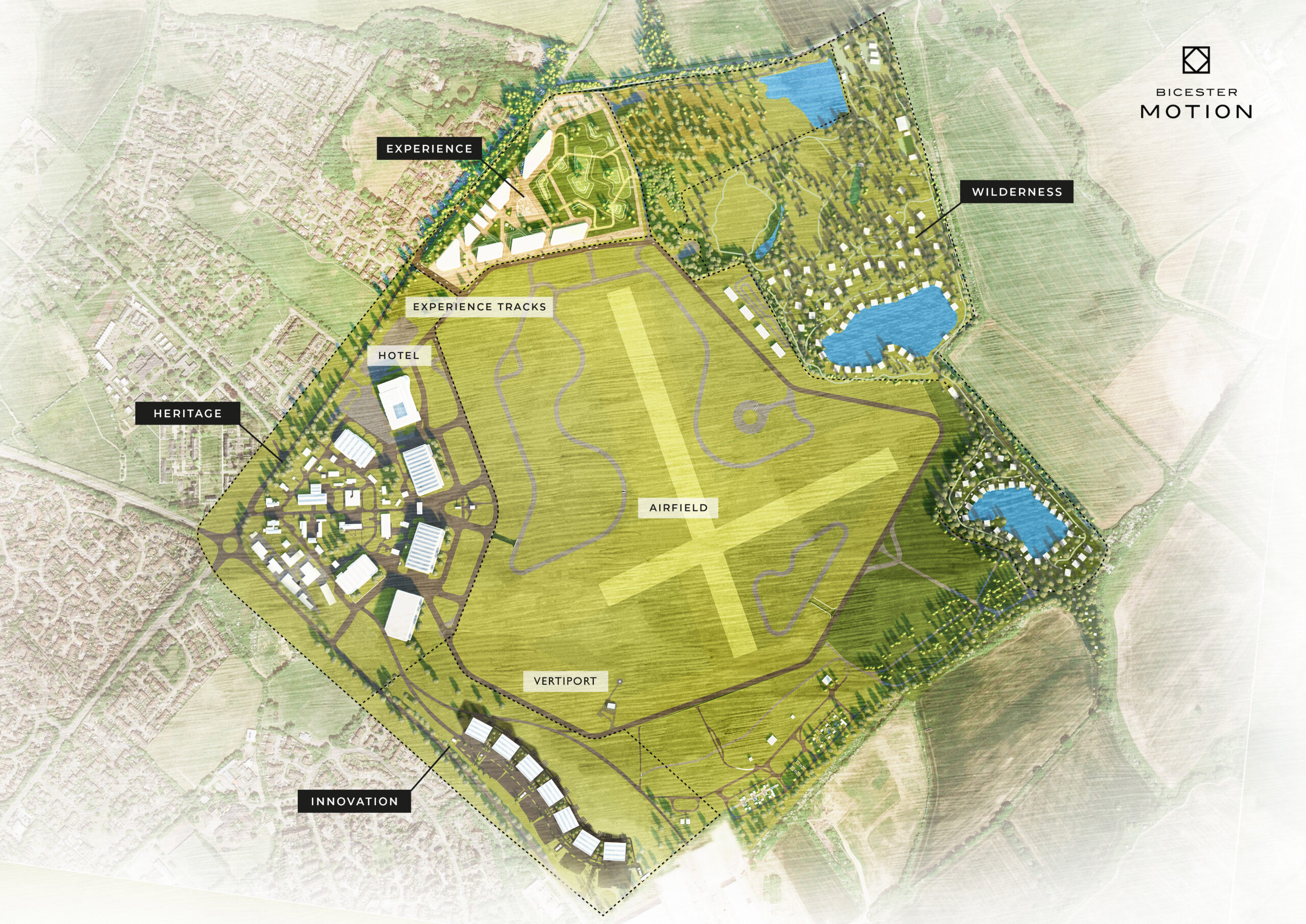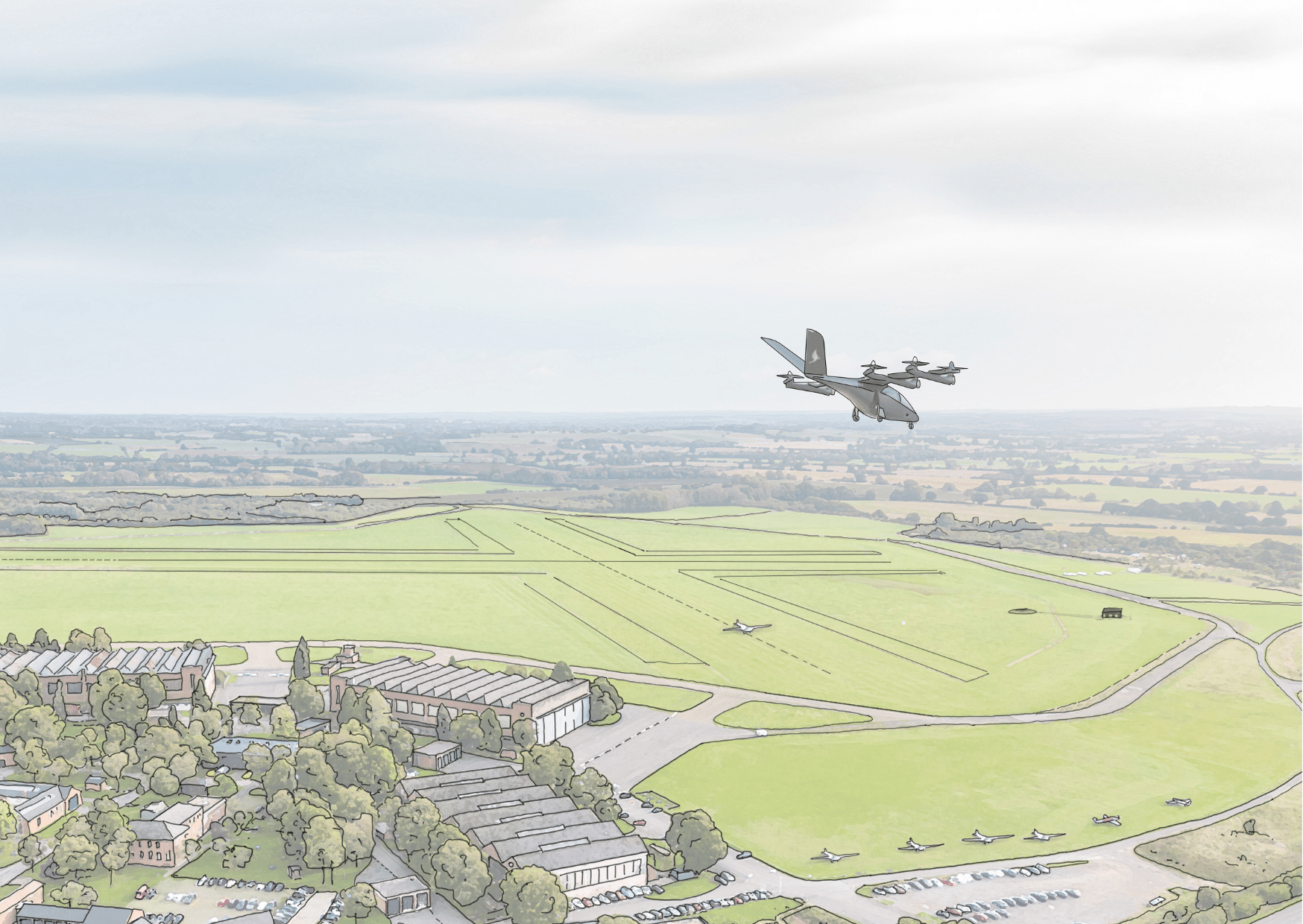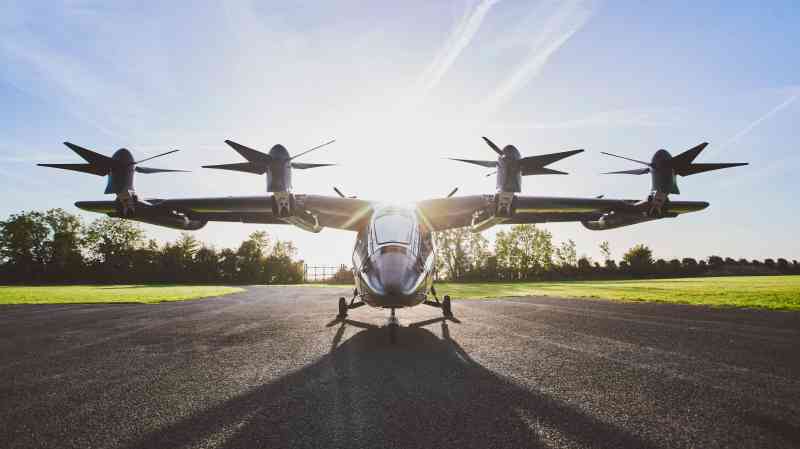UK’s first flying taxis near take-off as work begins on ‘vertiport’
In the skies of Dubai, Santa Cruz and Paris a race is on. A race to transform the way we move with state-of-the-art air taxis. And now it is coming to Bicester, home of the outlet shopping centre.
Spades are in the ground to build Britain’s first “vertiport” at a former RAF base on the outskirts of the Oxfordshire town as the reality of a new way of flying inches closer.
Tests of the first electric vertical take-off and landing (eVtol) aircraft from the site are set to begin by the end of the year with flights planned to Bristol, Heathrow and Farnborough.
Skyports, the company building the vertiport, has partnered with Vertical Aerospace, a Bristol-based advanced mobility company, as it moves closer to its ambition of the first eVtol launches in Britain.
“We looked at a few sites,” Duncan Walker, the founder of Skyports, said. “We wanted to do it at an existing airfield because it’s easier from a regulation perspective but also Bicester is a real tech hub with loads of automotive companies and is right in the heart of the country.”

Exactly what the first eVtol journeys will look like is still a little unclear but most in the industry agree that they will probably regional connectivity from hub airports, such as Heathrow, for premium-class passengers.
Under the government’s plans, the first commercial flights are expected to take off in 2026, although that still leaves Britain lagging behind some rivals.
In Dubai, work on Skyports’ vertiport on the Palm Islands and at the emirate’s international airport is soon to get underway. It also expects to be operational by 2026 in the Middle East, ferrying passengers from airports into city centres.
“The UK will be a couple of years after that,” Walker said. “And look, our first route is not going to be landing in Mayfair. It will be a less demanding route infrastructure-wise, but slowly over time the network will grow.”
Plans are also afoot for eVtols to play a large role at the 2028 Olympics in Los Angeles with the craft used to ferry athletes from the village to stadiums. Plans for such aircraft to feature at the Paris Olympics this year are understood to have been quietly shelved.
Around the world more than 400 start-ups are vying to be at the forefront of the nascent industry, although experts predict that very few will become a commercial success.
“It’s a real mixed bag of operators from drones to one-person aircraft right up to some of the bigger players,” Will Nathan, the head of public affairs at Vertical Aerospace, said.
The Bristol-based start-up has already begun real-life tests of its craft, the VX4. It’s black, shiny, and very futuristic. The company is working with Skyports to prepare for the first full test flights by the end of the year.
“That will involve Nats [the national air traffic controller] and what we are trying to achieve is showing how the whole ecosystem will come together to demonstrate the first full eVtol flight in the UK,” Nathan added.
It will be a big moment for the company, which was founded in 2016, as it hopes to have its craft fully certified for passenger use by the end of 2026.
Aviation experts have said that flying taxis will be first adopted by existing airlines to offer first-class passengers transfers from airports into cities. Within 15 years it is expected that the cost of trips will fall dramatically, threatening conventional taxis — particularly for longer journeys.

“What we’re not trying to do is replicate helicopters, which are the playthings of oligarchs,” Walker said. “The airlines that will operate this sort of vehicle talk about pricing similar to an Uber X in the long run. But of course, to get there you need economies of scale. So yes, it will start expensive, but not to the extent that it is ridiculously out of reach.”
Vertical Aerospace anticipates a hop of 20–30 miles eventually costing about £40 per passenger.
Nats, meanwhile, is developing a new app-based platform allowing operators to file flight plans that would be processed, amended or approved automatically. It is designed to speed up the process to work in a world where eVtols are operating continuously.
Under the plans, pilots would only need to physically talk to air traffic controllers in exceptional circumstances, with the app ensuring the aircraft was “entirely deconflicted from other aircraft”. An “airspace manager” would monitor all activity from a central digital control room.
Anna Postma-Kurlanc, the project lead at Nats, said: “Our skies are already busy, so we are going to have to find new, innovative ways of managing and integrating this new generation of electric aircraft.”
Work is also under way at the Civil Aviation Authority on the regulatory side of the industry. It has been consulting on vertiport design at existing aerodromes ahead of the planned trials.
“We are starting to get to the pointy end,” Nathan said. “We’ve been doing this for eight years and are now ramping up our flight tests as we move closer to certification. The government has published its Future of Flight plans which spell out that it wants to see the first commercial flights in 2026. It’s very exciting.”




Post Comment